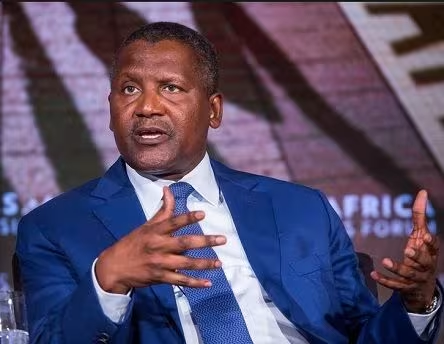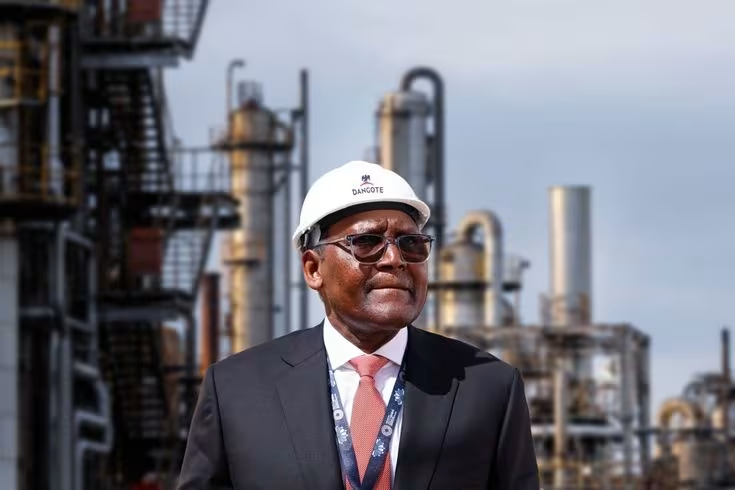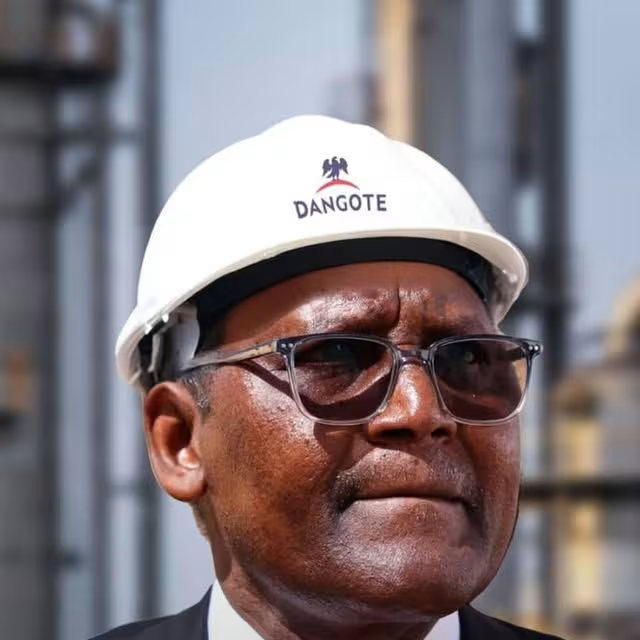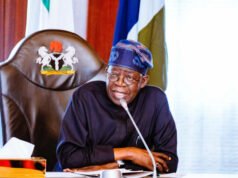Dangote Refinery Faces High Costs, Imports Crude from US Despite Nigeria’s Oil Wealth.
Aliko Dangote, the head of Dangote Industries Limited, has revealed a surprising challenge facing his massive petroleum refinery: it has to import a significant amount of crude oil, about 9-10 million barrels every month, from countries like the United States. This is happening even though Nigeria itself is a major oil producer.

Dangote shared this information at the West African Refined Fuel Conference in Abuja. He explained that his refinery has been forced to buy crude from international trading companies, which often purchase Nigerian crude oil and then sell it back to the refinery at much higher prices.
Africa’s $90 Billion Problem: Importing Fuel We Can Make
Dangote expressed deep concern about Africa’s heavy reliance on imported petroleum products. He highlighted that many of these imported fuels are cheap and often of low quality, even toxic, blended to standards that wouldn’t be allowed in Europe or North America.
He pointed out that Africa, despite producing crude oil, imports over 120 million tonnes of refined petroleum products each year, costing about $90 billion. This massive spending effectively sends jobs and economic opportunities out of the continent. To put it in perspective, Dangote noted that “only about 15% of African countries have a GDP greater than $90 billion,” meaning Africa is handing over its economic potential to other regions year after year.

Dangote believes in free markets but stressed that trade should be fair and efficient, not at the expense of quality or safety. He argued that it “defies logic and economic sense” for Africa to export raw crude only to buy back refined products that it is fully capable of producing itself, closer to home.
Building a Giant: More Than Just a Refinery
Reflecting on the challenges of building the world’s largest single-train refinery, Dangote explained it was an enormous and complex undertaking. He described it as one of the most capital-intensive and logistically challenging industrial projects ever built.
The project involved clearing a massive 2,735 hectares of land (seven times the size of Victoria Island in Lagos), 70% of which was swampy. This required pumping 65 million cubic meters of sand to make the site stable and raise it.
They also installed over 250,000 foundation piles and millions of meters of pipes and wires. At its peak, the construction site employed over 67,000 people, with 50,000 being Nigerians, working around the clock. The COVID-19 pandemic also caused a two-year delay and added significant complications, but they persevered.
The refinery project was so big that it even required building a dedicated seaport, as Nigeria’s existing ports couldn’t handle the huge equipment needed. This included over 2,500 pieces of heavy machinery and 330 cranes.
They even had to establish the world’s largest granite quarry to supply materials. Dangote emphasized, “we didn’t just build a refinery—we built an entire industrial ecosystem from scratch.”
Ongoing Hurdles: Money, Logistics, and Rules
Despite the refinery’s technical success, Dangote highlighted major ongoing commercial challenges. The exchange rate has been a huge factor, skyrocketing from N156 per US dollar at the project’s start to N1,600 per dollar at its completion, significantly increasing costs.
Another significant challenge is securing crude oil from Nigeria at competitive terms. Even though Nigeria produces about 2 million barrels of crude per day, the refinery has struggled to buy it directly from Nigerian producers. Instead, they often have to negotiate with those same international trading companies that buy Nigerian crude and then resell it to Dangote Refinery at “hefty premiums.

” This is why, as of now, the refinery buys “9 – 10 million barrels of crude monthly from the US and other countries.” He did, however, commend the Nigerian National Petroleum Company Limited (NNPC) for supplying some Nigerian crude cargoes since production began.
Logistical and regulatory issues also add to the burden. Port and regulatory charges can make up a whopping 40% of total shipping costs, sometimes costing almost as much as chartering the vessel itself.
Dangote compared this to India, where refiners pay lower freight costs even when buying crude from farther away, because they don’t face such high port charges. He also criticized the fact that it’s more expensive to load domestic fuel from his refinery (as customers pay at both loading and discharge points) compared to loading from a competitor like Lomé (where customers pay only at discharge).
Finally, Dangote criticized the lack of common fuel standards across African countries. This means the fuel produced for Nigeria cannot be sold in neighboring countries like Cameroon or Ghana, even though they use the same vehicles.
This “lack of harmonisation benefits no one—except, of course, international traders, who thrive on arbitrage.” He also noted the influx of cheap, low-quality fuel from Russia, blended under price caps and “dumped” in African markets.
Dangote called on African governments to implement protective measures for their domestic refiners, similar to those used in the United States, Canada, and the European Union.
Join Our Social Media Channels:
WhatsApp: NaijaEyes
Facebook: NaijaEyes
Twitter: NaijaEyes
Instagram: NaijaEyes
TikTok: NaijaEyes




